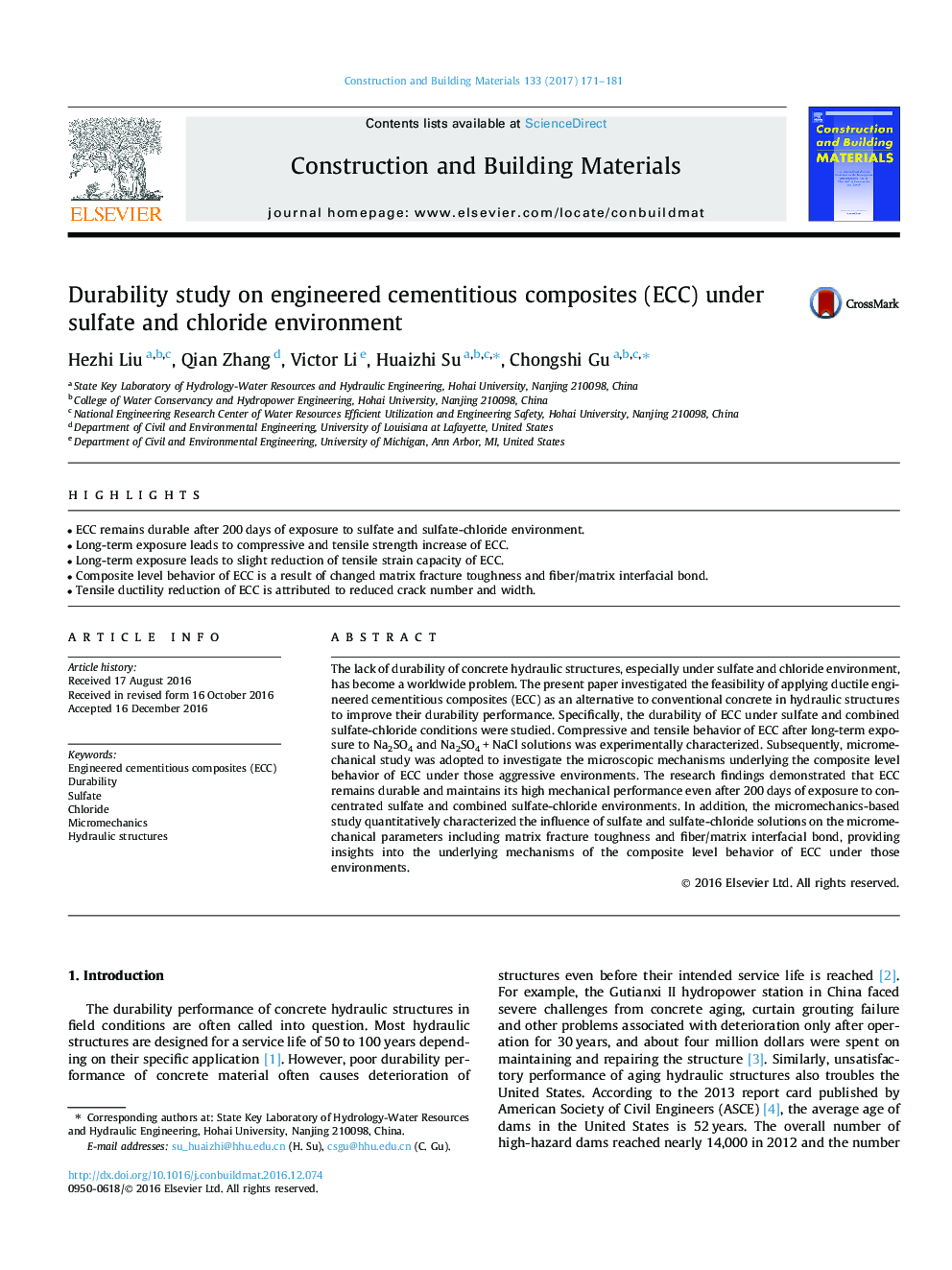| Article ID | Journal | Published Year | Pages | File Type |
|---|---|---|---|---|
| 4913764 | Construction and Building Materials | 2017 | 11 Pages |
Abstract
The lack of durability of concrete hydraulic structures, especially under sulfate and chloride environment, has become a worldwide problem. The present paper investigated the feasibility of applying ductile engineered cementitious composites (ECC) as an alternative to conventional concrete in hydraulic structures to improve their durability performance. Specifically, the durability of ECC under sulfate and combined sulfate-chloride conditions were studied. Compressive and tensile behavior of ECC after long-term exposure to Na2SO4 and Na2SO4Â +Â NaCl solutions was experimentally characterized. Subsequently, micromechanical study was adopted to investigate the microscopic mechanisms underlying the composite level behavior of ECC under those aggressive environments. The research findings demonstrated that ECC remains durable and maintains its high mechanical performance even after 200Â days of exposure to concentrated sulfate and combined sulfate-chloride environments. In addition, the micromechanics-based study quantitatively characterized the influence of sulfate and sulfate-chloride solutions on the micromechanical parameters including matrix fracture toughness and fiber/matrix interfacial bond, providing insights into the underlying mechanisms of the composite level behavior of ECC under those environments.
Keywords
Related Topics
Physical Sciences and Engineering
Engineering
Civil and Structural Engineering
Authors
Hezhi Liu, Qian Zhang, Victor Li, Huaizhi Su, Chongshi Gu,
